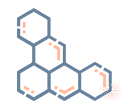Alfallaj, R., & Alfadhel, M. (2019). Glycine Transporter 1 Encephalopathy From Biochemical Pathway to Clinical Disease: Review. Child neurology open, 6, 2329048X19831486. https://doi.org/10.1177/2329048X19831486
Van Hove, J., Coughlin, C., II, Swanson, M., & Hennermann, J. B. (2002). Nonketotic Hyperglycinemia. In M. P. Adam (Eds.) et. al., GeneReviews®. University of Washington, Seattle.
Swanson, M. A., Coughlin, C. R., Jr, Scharer, G. H., Szerlong, H. J., Bjoraker, K. J., Spector, E. B., Creadon-Swindell, G., Mahieu, V., Matthijs, G., Hennermann, J. B., Applegarth, D. A., Toone, J. R., Tong, S., Williams, K., & Van Hove, J. L. (2015). Biochemical and molecular predictors for prognosis in nonketotic hyperglycinemia. Annals of neurology, 78(4), 606–618. https://doi.org/10.1002/ana.24485
Kurolap, A., Armbruster, A., Hershkovitz, T., Hauf, K., Mory, A., Paperna, T., Hannappel, E., Tal, G., Nijem, Y., Sella, E., Mahajnah, M., Ilivitzki, A., Hershkovitz, D., Ekhilevitch, N., Mandel, H., Eulenburg, V., & Baris, H. N. (2016). Loss of Glycine Transporter 1 Causes a Subtype of Glycine Encephalopathy with Arthrogryposis and Mildly Elevated Cerebrospinal Fluid Glycine. American journal of human genetics, 99(5), 1172–1180. https://doi.org/10.1016/j.ajhg.2016.09.004
Krawiec, C., & Goyal, A. (2021). Nonketotic Hyperglycinemia. In StatPearls. StatPearls Publishing.
Poothrikovil, R. P., Al Thihli, K., Al Futaisi, A., & Al Murshidi, F. (2019). Nonketotic Hyperglycinemia: Two Case Reports and Review. The Neurodiagnostic journal, 59(3), 142–151. https://doi.org/10.1080/21646821.2019.1645549





